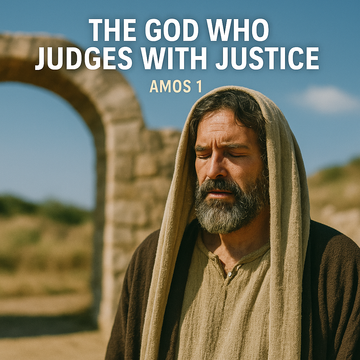Question: I have heard that the original languages of the Bible do not imply that same-sex relationships are sinful. The Bible’s issue is with “compelled” sexual acts. is this true?
Answer: The Bible is against all sexual acts outside the heterosexual union of a naturally born male husband and female wife in the context of a committed marriage covenant. Modern progressive Christianity has attempted to retranslate specific passages of Scripture in order to muddy the waters.
Let’s talk about it.
In today’s cultural and theological climate, few topics are as significant—and as emotionally charged—as the interpretation of New Testament passages related to same-sex behavior. Whether one leans toward progressive reinterpretation or adheres to traditional readings, how we understand Greek terms like malakoi (μαλακοί) and arsenokoitai (ἀρσενοκοῖται) carries weighty implications not only for biblical interpretation, but also for how we apply God’s Word in our moral and spiritual lives.
It’s crucial to wrestle with these terms carefully because our understanding shapes our theology, our ethics, and how we shepherd biblical communities. More than academic debate, this touches the heart of what it means to live under Scripture’s authority. The Bible itself underscores the importance of obeying God’s commands:
John 14:15 — “If you love me, you will keep my commandments.”
1 John 5:3 — “For this is the love of God, that we keep his commandments. And his commandments are not burdensome.”
1 Samuel 15:22 — “Obedience is better than sacrifice…”
2 Timothy 3:16–17 — “All Scripture is breathed out by God and profitable for teaching, for reproof, for correction, and for training in righteousness…”
These passages remind us: robust theology isn’t optional… it’s obedience.
1. 1 Corinthians 6:9–11
1 Corinthians 6:9–10 (ESV): “Do you not know that the unrighteous will not inherit the kingdom of God?… neither the sexually immoral, nor adulterers, nor malakoi, nor arsenokoitai… will inherit the kingdom of God.”
Modern (Progressive) Interpretation
Some assert that malakoi and arsenokoitai refer only to exploitative or abusive practices—such as pederasty or sex slavery—and not to consensual same-sex relationships generally.
Traditional Interpretation (Debunking It)
These terms are placed in a vice list alongside adultery and immorality—sins that “will not inherit the kingdom of God.” Linguistically, arsenokoitai likely derives from the Septuagint’s translation of Leviticus prohibitions, signaling condemnation of male same-sex sexual activity broadly—not just abusive scenarios.
“The two terms, malakoi and arsenokoitai, then, capture, in unqualified and comprehensive fashion, male same‑sex activity.”
NET Bible notes: “The words translated… as ‘passive homosexual partners’ and ‘practicing homosexuals’ are ‘malakoi’ and ‘arsenokoitai’, respectively.”
2. 1 Timothy 1:9–10
1 Timothy 1:9–10 (ESV): “…the law is not laid down for the just but for the lawless and disobedient, for the sexually immoral, arsenokoitai, enslavers, liars, perjurers…”
Modern (Progressive) Interpretation
Some argue arsenokoitai here refers to exploitative or non-consensual contexts, not general same-sex relations.
Traditional Interpretation (Debunking It)
The term appears among lawbreaking sexual sins—including “sexual immorality” and “liars”—indicating broader moral failure. Rooted in Levitical language, Paul appears to condemn male same-sex intercourse generally.
Wikipedia summary: “Most commentators and translators interpret [arsenokoitai] as a reference to male same‑sex intercourse.”
James B. De Young: The traditional interpretation sees arsenokoitai as referencing “sexual vice between people of the same sex, specifically homosexuality.”
Now What?
God’s Word is precious, powerful and has stood the test of time. It can withstand our honest scrutiny. Now that we know what God’s Word means, what do we do with it?
- Use the original Greek terms (malakoi, arsenokoitai) rather than modern anachronisms like “homosexual,” which only appeared in translations starting mid‑20th century.
- Highlight their placement in vice lists, reinforcing their role as descriptors of sins Paul deemed serious.
- Reference obedient living scriptures (like John 14:15, 2 Timothy 3:16–17) to ground interpretive responsibility in Scripture’s authority.
- Present scholarly diversity—including both traditional views (e.g., DAVID M. WALKINGWITHGIANTS.NET, J. B. DE YOUNG) and progressive critiques (e.g., STR.org, Boswell)—but explain why linguistic and contextual evidence favors the broader interpretation.
- Maintain humility and integrity—while debates persist, the weight of lexical formation, scriptural context, and historical interpretive tradition supports a comprehensive understanding.
Bottom Line
This topic matters not just for theological debate but for fidelity to God’s Word. While progressive readings raise important considerations about context and exploitation, the language, context, and tradition all point to Paul condemning male same-sex sexual activity more generally. Applying the Bible faithfully demands recognizing and responding to Scripture with both accuracy and obedience.
Resources
- GospelReformation.net: Paul’s Understanding of Sexuality – malakoi & arsenokoitai
- NET Bible commentary on translation of these terms
- Wikipedia: “Homosexuality in the New Testament” for summary of interpretive debates
- James B. De Young, TMSJ article on the meaning of arsenokoitai
- Article on the history of “homosexual” in Bible translations
- Scriptures on obedience and the authority of God’s Word (John 14:15; 1 John 5:3; 1 Samuel 15:22; 2 Timothy 3:16–17)









